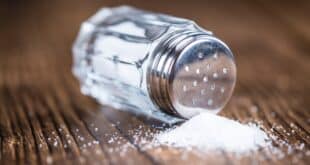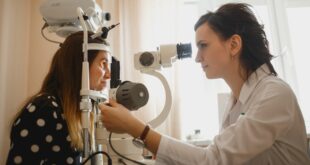About one in 5 adult Americans consume over 350 mg of caffeine per day, a level sufficient to produce dependency. A 5 ounce cup of coffee contains between 60 and 150 mg of caffeine while a cup of tea has 35 to 60 mg, depending upon the variety used, the method of preparation and the strength of the brew. A cola typically contains 30-55 mg of caffeine per 12-oz. can. New caffeinated beverages such as Surge, Jolt, and Water Joe all contain about 55-70 mg caffeine/12 oz. can and are intended to provide a cerebral buzz. Caffeine elevates blood glucose giving the allusion of an energy surge.
Caffeine is considered a psychoactive drug since it stimulates the central nervous system and alters mood and behavior. Physiological effects may be experienced in adults after as little as one cup of coffee or 2 cans of cola. The unnatural stimulation or high is usually followed by a depression or low. Unfortunately, caffeine has a variety of adverse physiological effects.
Adverse Effects of Caffeine
Adverse effects include insomnia and disruption of sleep patterns; tremors, nervousness, restlessness, and irritability; headaches; elevation of blood fatty acid levels; elevation of blood pressure and/or serum cholesterol levels; irregular heartbeats and palpitations, and increased risk of cardiac arrhythmia and heart attack; increased gastric acid production & aggravation of peptic ulcers; increased heartburn; more symptoms of PMS; higher risk of bladder and rectal cancer; higher risk of the birth of a low-birth-weight child; and increased urinary calcium losses.
In addition, the use of coffee and tea reduces the non-heme iron absorption of a meal by 40 to 60%, thereby increasing the risk of anemia. While caffeine improves performance of simple tasks that require attention it actually worsens performance that involves short-term memory. Caffeine causes a worsening of fine motor coordination due to an increase in hand and arm tremors.
Children are drinking excessive amounts of cola beverages. Pediatricians are concerned because as many as one-third of all children consuming high levels of caffeine manifest hyperactive behavior typical of caffeinism. A young child consuming one can of cola, may receive a caffeine jolt equivalent to an adult receiving 4 cups of coffee.
Other Risk Factors
Not every study has shown a cholesterol-raising effect of coffee. However, new research finds a strong connection between the coffee consumption and serum homocysteine levels, a risk factor for cardiovascular disease. Drinking one or more cups of coffee per day increases interleukin-6 and C-reactive protein levels and other markers of systemic inflammation which are considered risk factors for cardiovascular disease.
Recently, coffee drinkers have drawn some hope from the reports that coffee consumption may reduce the risk of a person getting type 2 diabetes. While caffeine impairs insulin sensitivity, the chlorogenic acids in coffee block glucose uptake from the gastrointestinal tract, giving them an anti-diabetic effect.
Regular users of caffeine who try to quit, may experience increased anxiety, headache, irritability, and fatigue during the first few days of abstinence. One can relieve caffeine withdrawal symptoms temporarily by caffeine consumption which contributes to the habitual use of the drug. Caffeine is considered an addictive drug, and its regular use can lead to dependency. Some have suggested that its use may lead to the use of a stronger drug.
With so many questions regarding the safety of caffeine, the use of tea, coffee and cola beverages cannot be encouraged. Small children and pregnant women especially should avoid caffeine-containing foods and beverages.
Winston J. Craig writes from Michigan.
If you liked this, you may also like Sugary Drinks
© 2002 - 2025, AnswersForMe.org. All rights reserved. Click here for content usage information. Answers for Me Support & encouragement for every-day life
Answers for Me Support & encouragement for every-day life



